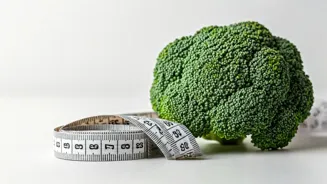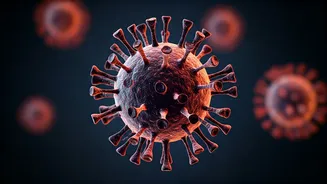Hydrate, Hydrate, Hydrate
Drinking adequate water throughout the day is crucial for overall health and can significantly aid in belly fat reduction. Begin your day by consuming
a glass of water to kickstart your metabolism. Aim to drink at least eight glasses of water daily, and consider carrying a reusable water bottle to track your intake. Water supports numerous bodily functions, including the digestion of nutrients and the removal of waste. Adequate hydration helps regulate metabolic processes, which can increase fat-burning efficiency. It also helps you feel full, curbing your appetite and reducing the chances of overeating. Staying well-hydrated helps ensure your body functions at its optimal level, boosting your efforts to lose belly fat. You should also choose water over sugary drinks to cut down on extra calories, further supporting your weight loss journey and overall health.
Prioritize Protein Intake
Incorporating protein into your daily diet is essential for fat loss, and it's especially important when targeting belly fat. Protein helps you feel fuller for longer, which prevents unnecessary snacking and reduces your overall calorie intake. Focus on including protein-rich foods in every meal, such as eggs, lean meats, fish, beans, and lentils. These foods also provide essential nutrients, vitamins, and minerals, supporting your body's overall health. Protein aids in preserving muscle mass during weight loss. Muscle tissue burns more calories than fat tissue, so maintaining or increasing muscle mass can further boost your metabolism. Make protein a cornerstone of your daily diet to enhance your belly fat reduction efforts, promoting more effective and sustainable weight loss.
Embrace Fiber-Rich Foods
Fiber is your ally in the battle against belly fat. Fiber-rich foods are digested slowly, which keeps you feeling full for extended periods and prevents overeating. Include plenty of fruits, vegetables, and whole grains in your diet. These foods are packed with both soluble and insoluble fiber. Soluble fiber helps reduce fat absorption, while insoluble fiber promotes regular bowel movements. Good sources of fiber include oats, apples, berries, and leafy greens. Fiber-rich foods also provide essential vitamins and minerals, supporting your overall health and well-being. Fiber supports weight loss and helps keep your digestive system healthy. Focusing on fiber-rich foods in your daily diet can be a powerful strategy for reducing belly fat while enhancing your overall health.
Get Enough Sleep
Sleep is often underestimated but plays a crucial role in weight loss and particularly in reducing belly fat. Aim for at least seven to eight hours of sleep per night. Sleep deprivation disrupts hormones, such as cortisol, that regulate appetite and fat storage, leading to increased cravings for unhealthy foods. Sufficient sleep keeps hormones balanced, keeping your appetite under control. Prioritizing sleep also boosts your metabolism, allowing your body to burn more calories during the day. Ensure your bedroom is conducive to sleep – dark, quiet, and cool. Make sleep a non-negotiable part of your daily routine. By improving your sleep habits, you can enhance your body's ability to reduce belly fat and improve your overall health and wellness.
Manage Your Stress
Chronic stress can wreak havoc on your health and contribute to belly fat accumulation. When you're stressed, your body releases cortisol, a hormone that can increase fat storage, particularly in the abdominal area. Incorporate stress-reducing activities into your daily routine, such as meditation, yoga, or simply spending time in nature. Engage in activities you enjoy, such as listening to music, reading a book, or spending time with loved ones. Practicing mindfulness, even for a few minutes each day, can significantly lower stress levels. Proper stress management helps to regulate cortisol, decrease emotional eating, and support weight loss. Make a commitment to prioritize your mental health by implementing stress management techniques to boost your efforts to reduce belly fat.
Limit Processed Foods
Processed foods are often high in added sugars, unhealthy fats, and calories, and can significantly hinder your belly fat reduction efforts. These foods provide minimal nutritional value and can lead to weight gain. Minimize your intake of processed snacks, sugary drinks, and fast food. Focus on eating whole, unprocessed foods that are packed with nutrients and support your overall health. This approach includes preparing meals at home, reading food labels carefully, and avoiding foods with long lists of ingredients you can't pronounce. Prioritizing whole foods will help reduce your caloric intake, providing your body with essential nutrients and supporting your weight loss goals. Make a shift to wholesome foods to see improved results.
Include Regular Exercise
Regular exercise is a key component of any successful belly fat reduction plan. Include a combination of cardio and strength training exercises in your routine. Cardio exercises like brisk walking, jogging, or cycling, help burn calories and reduce overall body fat. Strength training exercises, such as weightlifting or bodyweight workouts, help build muscle mass, which boosts your metabolism. Aim for at least 150 minutes of moderate-intensity aerobic activity or 75 minutes of vigorous-intensity activity per week. Make exercise a consistent habit by finding activities you enjoy and scheduling them into your day. Exercise not only helps reduce belly fat but also improves your overall health, cardiovascular health, and mood. Regular physical activity is essential for a successful and sustained weight loss journey.














